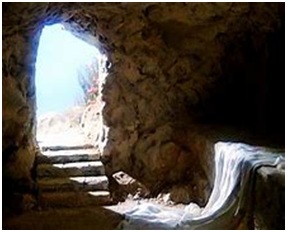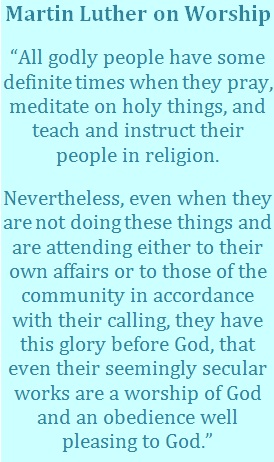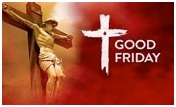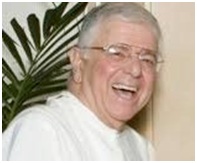
“A Piece of My Mind”
April 2022 Newsletter
Advancing Christian Faith and Values,
Defending Religious Liberty for All,
Supporting Civility and the Common Good
through Preaching, Teaching, Writing, Activism and Reasoned Conversations

 The Easter Hymn
The Easter Hymn
(dated 2nd-3rd century AD)
Christ is risen, Hell is in ruins.
Christ is risen: the demons are fallen. Christ is risen: the angels rejoice.
Christ is risen: the tombs are empty. Christ is risen from the dead indeed,
the first among those who have fallen asleep.
Glory and power are his forever and ever. Amen.
Charles W. Colson (1931-2012)
From Ruthless Power Player in the Nixon White House to
Born-again Christian, from Felon in Prison to Founder of Prison Fellowship and a Major Contributor to Christian Thought till he collapsed giving a speech on March 30, 2012.
April 21 marks the 10th Anniversary of Charles Colson’s death.
The column below was published in The Los Angeles Daily News and other newspapers affiliated with the Southern California News Group.
Donald P. Shoemaker:
Watergate’s Charles Colson transformed lives and ideas
By DAILY NEWS
PUBLISHED: April 24, 2012
“If this is to be a government of laws and not of men then those men entrusted with enforcing the laws must be held to account for the natural consequences of their own actions. Not only is it morally right that I plead to this charge but I fervently hope that this case will serve to prevent similar abuses in the future.”
So said soon-to-be prisoner 23227, aka Charles W. Colson, at Alabama’s Maxwell Correctional Facility in 1974. Special counsel to the president and hatchet man for the Nixon administration, he loved to hear Mr. Nixon say, “Chuck can get it done.” Time Magazine reported in 1974 that “Of all the assorted characters in the sordid Watergate cast, Charles Colson was widely viewed in Washington as the wiliest, the slickest operator.”
Between his departure from the White House and his guilty plea for obstruction of justice, Mr. Colson experienced a dramatic conversion to Christianity. Sparked by his friend, Raytheon President Tom Phillips, and C.S. Lewis’ book “Mere Christianity,” Colson turned the page in his collapsing life on August 12, 1973 as he sat in his car that night and, by his own account, cried like a baby.
Colson emerged from prison determined to speak out for prison reform and oppose the incarceration of nonviolent offenders who instead should re-enter society productively and pay restitution for their wrong. He established Prison Fellowship, now a worldwide ministry to prisoners.
Each Christmas season, Prison Fellowship’s “Project Angel Tree” provides gifts to children of prisoners. He ministered in prisons every Easter Sunday for the 34 years before his sudden illness this Easter season that led to his death on Saturday. Colson would lead this ministry for almost 40 years and spin off other projects such as, in 2009, The Colson Center for researching and promoting a Christian worldview.
Colson was often identified with the religious right and has been described as its last prominent spokesman. True, he did embrace many of the religious right’s agenda items, but he also stood apart in significant ways.
One was his refusal to embrace the call to elect “godly Christian leaders.”
He knew the proclivity to both good and evil in politics. Sometimes we must vote for the lesser of two evils.
He warned, “We made a big mistake in the ’80s by politicizing the Gospel. We ought to be engaged in politics, we ought to be good citizens, we ought to care about justice. But we have to be careful not to get into partisan alignment.”
In 2011 he declared that the war in Afghanistan had long ceased to be a “just war” by the classical definitions. He reasoned that “nation-building” failed the “just cause” test and the conflict did not have the reasonable likelihood of success.
On illegal immigration, he upheld the rule of law against both those in the country illegally and those who employed them. But he also laid down the challenge: “Christians must work to see that the immigration debate generates light instead of heat. We must insist that the illegal-immigration issue be addressed without treating millions of Americans, many of whom have died protecting our country, as a kind of fifth column. That is the very least we can do if we are obedient to God’s command to welcome strangers.”
Colson possessed a brilliant legal mind and spoke accordingly. Evangelical Christianity benefited greatly from this outsider who challenged our patterns. His perceptive, nuanced weighing of the issues should make us all more reflective. He mentored a generation of Christian leaders and workers and, in the opinion of this writer, was their best contemporary model for thoughtfulness and good deeds.
Donald P. Shoemaker is pastor emeritus of Grace Community Church of Seal Beach.
Charles Colson’s Final Speech
March 30, 2012 – Charles Colson fell ill during his speech at the Wilberforce Weekend Conference hosted by the Colson Center for Christian Worldview.
I happen to be one of those who believes that societies are changed by movements at the grassroots . . . So it comes right back to us. Look in the mirror, that’s where the problem is. And if we can, through the church, renew the church to really bring a healthy cultural influence, then there’s some hope that we can be changed.
This is a moment when the time is right for a movement of God’s people under the power of the Holy Spirit to begin to impact the culture we live in. Desperately needed . . .
Worship: Who and What and When and Why and How
– 3rd Essay on Worship for 2022
“Let My People Go!”
The Word of the Lord through Moses to the ruler of Egypt
God wanted his enslaved children released, and this phrase has been a powerful challenge against human oppression everywhere, anytime. Good!
But the phrase is fundamentally a “Call to Worship” (literally, a call to be released for worship). It was not an emancipation call, but would lead to that.
This is what the Lord, the God of the Hebrews, says: “Let my people go, so that they may worship me.” (Exodus 9:13 NIV)
“Let my people go, so that they may hold a festival to me in the wilderness.” (Exodus 5:1)
So, who is worshipped and who are the worshippers? Worship is foremost an encounter between God and his spiritual children—those who have willingly come to give honor to God and receive his gracious blessings. Not everyone worships or even cares to. And certainly not everything should be worshipped (unlike pantheism). The God who created all things, who is the Father of Abraham, Isaac and Jacob, whose Son we know as our Lord and Savior—this God we worship. And we worship him exclusively (Luke 4:8; see Commandments I, II, III in “Bible Insight” below).
“Worship” is the response of adoration that men and women make to God their Creator and Redeemer, whether through ceremony and song, through Word and teaching, through nature, or through human life—work and play, activity and rest, creativity and character.
Worship can be a formal activity (scheduled, planned, gathered) as well as a constant personal activity (anytime, unscripted, alone or with others).
Even “small acts” should be worship: “Whether you eat or drink or whatever you do, do it all for the glory of God” (1 Corinthians 10:31).  So we sing:
So we sing:
Thou my best thought, by day or by night,
Waking or sleeping, Thy presence my light.
Up to this point I’ve covered the “Who” (God and his spiritual children) and “What” of worship and touched on “When.” Here’s more about “When.”
True, we worship God throughout his creation.
When I look down from rocky mountain grandeur,
And see the brook and feel the gentle breeze.
Then sings my soul, my savior God, to Thee,
“How great Thou art! How great Thou art!”
As a hiker, I love to sing those words. I even tried it once with a group of men as we arrived at the top of a 10,834’ peak. (Lesson learned: high-altitude singing by panting men not recommended!)
But there also must be a special time and place for worship—the gathering of believers. Scripture is so emphatic on this: “Let us not give up meeting together, as some are in the habit of doing, but let us encourage one another” (Hebrews 10:25).
Call it “church” or call it something else if that word isn’t trendy enough for you. The early Christians regularly met for worship (likely on the Sabbath or, for Gentile believers, more and more on Sundays—Acts 20:7).
From Paul’s first letter to the Corinthians we learn that the verb “come together” (sunerchomai) was practically a technical term for worship gatherings. During those times, the Christians would sing, pray, eat, observe Communion, use their spiritual gifts to serve one another, hear Scripture read and explained, and more (1 Corinthians 11:17-34; 12-14; also Acts 2:41-44; 4:31; 20:7-8).
Paul is often correcting abuses in 1 Corinthians 11-14, so our task is to construct positive worship principles from both his exhortations and his criticisms. One key principle: we are to approach worship not for what we can gain but for what we can give. “All…must be done for the strengthening of the church” (1 Corinthians 14:26). Gathered worship is not for self-edification but for the upbuilding of all. The question is not, “Did it serve my needs?” Rather, “Did I serve the needs of others?”
Why do we worship? Because God is great and God is good. Hence, God is worthy of our worship (Psalm 107:1; 148:13).
Worship the Lord with gladness;
Come before him with joyful songs.
Know that the Lord is God.
It is he who made us, and we are his.
Give thanks to him and praise his name,
For the Lord is good and his love endures forever. (from Psalm 100)
Worship is a key avenue for expressing love for God with all our hearts. Worship is also a key step in our becoming more like God in our love for others. Loving God and loving others are the “Two Great Commandments” (Matthew 22:37-40) and worship will enhance our obedience to both.
Finally, a word on the “How” of worship. Much of my Christian upbringing and training put a great emphasis on the intellectual side of worship. The Sermon was the central feature of worship—all else seemed secondary. But such worship is unbalanced. We are more than our minds. At least two other features of our reality should be engaged in worship: (1) our bodies and (2) our emotions. Without all three, our worship is truncated.
Our bodies are to honor the Lord always (1 Cor. 6:19), especially in worship. So in bodily worship we sing with our lips and vocal chords, clap our hands, lift our hands, use our fingers to give money—even dance to the Lord (if you know how!). We play instruments (if you can!) skillfully with a loud noise.
All of this involves our bodies and draws on our emotions. Worship shouldn’t be rich in mind but poor in body. Nor with our emotions on and the mind off. All my career I have prayed and worked for balance, and often I have found it.
Thus, all my gladsome way along, I sing aloud Thy praises,
That men may hear the grateful song my voice unwearied raises,
Be joyful in the Lord, my heart. Both soul and body bear your part.
To God all praise and glory! – Johann Schutz (1675)
 Next month: “The Psalms—The First Christian Hymnbook”
Next month: “The Psalms—The First Christian Hymnbook”
Please continue with me in this pilgrimage!
“A republic, if you can keep it.” – Ben Franklin (1787)
 “Democracy is the worst form of Government except for all those other forms that have been tried.”
“Democracy is the worst form of Government except for all those other forms that have been tried.”
– Winston Churchill (1947)
“Au-TOC-ra-cy” – A form of government in which a country is ruled by a person or group with total power.
What If I Dreamed about Creating an Autocracy?
I’d concentrate power in the Executive Branch.
• Govern by executive orders every way I can.
• Take advantage of real or imagined “Emergencies” to expand my authority. Gov. Newsom (CA), who has used emergency power for two years to issue over 500 edicts and no-bid contracts, would be my model.
• Eliminate term limits for myself if I can get it passed.
• Have the military advance executive goals, not just defend the country.
I’d minimize the authority of the Legislative Branch.
• Reduce authentic legislative debate—push legislation through.
• Have it yield as much authority as possible to the Executive Branch.
I’d end the Judicial Branch’s independence and make it subservient.
• Pack the court until a majority supports the Executive Branch.
• Subject its decision to approval or rejection by the Executive Branch.
I’d dilute the protections of the First Amendment that allow contrary voices to raise moral, practical, legal and political objections to my rule.
• Freedom of the Press and of Speech (especially in academia) must be curtailed. Prohibitions on “Hate Speech” must be expanded.
• Freedom to Assemble peacefully in opposition to autocracy must stop.
• Use Covid as a reason to restrict Freedom of Assembly and of Religion.
• Very important: Freedom of Religion must be minimized to little more than the right to believe what you want, but not act on it.
If I achieved these, I could rule as an autocrat. Benevolently, of course!
Bible Insight – A Lenten Prayer for Forgiveness
“We have redemption through his blood, the forgiveness of sins,
in accordance with the riches of God’s grace.” – Ephesians 1:7
 Good Friday is especially a day for reflecting on how we have “fallen short” of obedience to God (Romans 3:23). Here I reflect on the meaning of The Ten Commandments and offer a prayer for us to receive God’s forgiveness.
Good Friday is especially a day for reflecting on how we have “fallen short” of obedience to God (Romans 3:23). Here I reflect on the meaning of The Ten Commandments and offer a prayer for us to receive God’s forgiveness.
I. God, you command us to have no other gods before you. But instead we put what you have made or given us first in our lives. We put pleasures or possessions or people, or our quest for happiness, security and meaning ahead of knowing and loving and walking with you.
II. You command us not to make any graven images. We may not have made actual idols, but sometimes we are covetous and seek fulfillment in things around us rather than in you.
III. You command us not to take your name in vain. Yet we claim your authority for our own goals and pursuits. We do not protect the honor of your name in how we live, what we say, and how we treat others.
IV. You command us to remember your gift of a day of rest. Yet we refuse to follow your example of rest from our labors. We put our pursuits ahead of rest in you. We fail to be consistent in laying aside our everyday activities each week to worship you in fellowship with the church family.
V. You command us to honor our fathers and mothers. Yet we fail to love and serve and care for them or obey them as we should. We who are parents fail to live honorable lives before our children so they might more easily obey your word with joy.
VI. You command us not to murder. We may not actually kill, but we commit sins against human dignity. Our own homes can manifest domestic violence. We fail to protect the most vulnerable of our fellow human beings. And we let hatred, racism, mistreatment of others and unrighteous anger rule our hearts and characterize our conduct.
VII. You command us not to commit adultery. Yet we break the covenant of marriage or fail to nourish it as we should. We excuse sexual immoralities and lust. We fail to uphold marriage as Scripture taught it, and the family as the bedrock of society that it is.
VIII. You command us not to steal what belongs to others. Yet we consider ourselves entitled to these things and we justify theft in many forms—actually taking what isn’t ours, failing to repay debt, theft of time for which we are paid, cheating on our taxes and more. And we fail to be generous to the needy and to the ministries you call your church to fulfill.
IX. You command us to be truthful. Yet we bear false witness through slander, gossip, unfair criticism or even perjury. We use our tongues or social media to destroy others rather than build them up. We fail to share words of honesty, comfort, love and wisdom.
X. You command us not to covet. Yet we cast a wrongful eye on what belongs to another, whether that person’s spouse or property or skills or status. Inwardly we despise their success and fail to show contentment with what you have graciously given us.
Righteous and loving God, forgive us our sins as we humbly repent.
Create in us a new heart so we will readily and fully acknowledge and lament our sins, and thus gratefully receive forgiveness and restoration from you, the God of all mercy. Renew a right spirit within us, so we may faithfully love you and our neighbor.
We pray through Jesus Christ our Lord, our redeemer, our intercessor, who lives and reigns with you in the unity of the Holy Spirit, One Eternal God, Amen.
 “This is my body, given for you.
“This is my body, given for you.
This is my blood of the covenant, which is poured out for many for the forgiveness of sins.”
– Jesus (Matthew 26:26-28)
 Once Again I Have Lost a Dear Friend
Once Again I Have Lost a Dear Friend
I first met “Father Leo” on a pro-life picket line at a local medical center around 1973. Back then Protestants were extremely rare at such events, which were predominantly Catholic. He and I seemed to “click” in many ways.
Soon afterward he invited me to speak at St. Joseph Church near my own pastorate. I went reluctantly, but the hymns “A Mighty Fortress Is Our God” (Martin Luther) and “Amazing Grace” lifted my spirit before my message.
Over almost 50 years we had innumerable contacts and he deeply touched my life. He passed away on March 1st at age 89, in the 50th year of his ministry.
Give with Confidence for Ukrainian Relief:
 Samaritans Purse
Samaritans Purse
www.samaritanspurse.org
Slavic Gospel Association
www.sga.org
Encompass World Partners
www.encompassworldpartners.org
World Vision
www.worldvision.org
www.donaldshoemakerministries.com
Contact me at: donaldshoemakerministries@verizon.net
Don has been a member of the clergy in the Long Beach, California area since 1970. He now serves as Pastor Emeritus of Grace Community Church of Seal Beach (where he was senior pastor 1984-2012) and as Senior Chaplain of the Seal Beach Police Department (2001+). He previously was an assistant professor of Biblical Studies at Biola University (1976-84) and chaired the Social Concerns Committee in the Fellowship of Grace Brethren Churches from 1985 to 2019.
His graduate work includes a Master of Divinity from Grace Theological Seminary, a Master of Theology from Fuller Theological Seminary with a concentration in Christian ethics, and a Doctor of Ministry from American Baptist Seminary of the West (now Berkeley School of Theology) with a concentration on the Charismatic Movement. His law school studies included a course on the First Amendment. He and his wife Mary have been married for over 55 years. They have two children and six grandchildren.
© 2022 Donald P. Shoemaker

